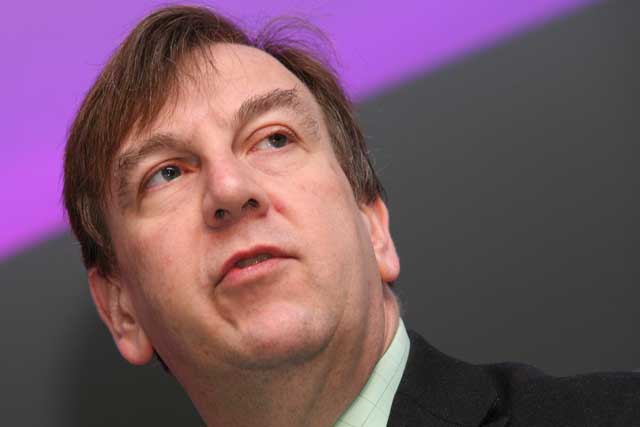
John Whittingdale, chairman of the select committee on media affairs, argued at ISBA's annual conference that newspaper publishers might be given "one last chance" to avoid statutory legislation if they sign up to a new form of the Press Complaints Commission, in which the country's biggest advertisers are given the power to impose real financial sanctions on aberrant publishers.
A Parliamentary joint committee, also chaired by Whittingdale, subsequently recommended a new "kitemark" system, with publications that refuse to take part "penalised in terms of their advertising rates".
This notion has, at its heart, a belief that News International closed News of the World because it was threatened by a boycott from advertisers upset about the alleged misconduct of its journalists.
An alternative view is that a small number of advertisers were spooked by a lynch mob whipped up by a Twitter campaign that was started by a couple of hapless Guardian hacks.
The advertisers that made public statements did so at the behest of legal counsel and their corporate affairs colleagues, rather than their marketing departments or their advertising or media agencies.
So – replicating that sour little cocktail on a regular basis as part of a regulatory framework will take some doing.
The whole Leveson circus will seem an unforgivable waste of public money if its ultimate recommendations add up to little more than a call for a newly rebadged version of the status quo.
Adding advertisers to the mix could (at a pinch) be presented as a genuinely new departure – even if, as is all too readily apparent, there are practical issues as regards how advertisers might actually go about implementing sanctions.
For decades, it has often been assumed (erroneously, as it happens) that large companies already use their ad budgets to leverage some form of editorial influence – and that this (supposedly shadowy) influence is a thoroughly bad thing. Selling it overnight as a thoroughly good thing will not be pretty.
In short, you could argue that the ad industry would be well-advised to distance itself unequivocally from this latest half-baked proposal. However, Bob Wootton, the director of media and advertising at ISBA, doesn't quite see it that way. There's no harm in exploring the possibilities in this area, he argues – though he does concede that it might be important to "manage expectations" in the political sphere.
He adds: "Politicians have noted the success of advertising content regulation. We should share our expertise and explore whether it might be extended into the editorial area. But what the politicians understand as the wellspring of advertiser discontent as a factor in the closure of News of the World may have been exaggerated."
And Geoff Russell, the director of media affairs at the IPA, extends a similarly cautious welcome to the Whittingdale declaration. He states: "There is a clear precedent in the self-regulation of advertising content. However, a solution which works extremely effectively in one sector might not transfer so well, or so smoothly, into another."
And, of course, advertiser involvement would have to be considered within the context of the sort of big-picture, long-term trading agreements that most advertisers have, via their media agencies, with publishers.
The sort of trading agreements overseen, for instance, by the likes of Dominic Williams, the director of print at Aegis. He believes that the presence of advertisers closer to the PCC process will introduce a far more credible notion of both carrot and stick.
He explains: "It will put pressure on media owners to self-regulate and adhere to the PCC guidelines. It will mean that titles can't just pull out of the process as that will result in potential loss of revenue for them, since advertisers will view them as breaking the rules."
Stewart Easterbrook, the chief executive of Starcom MediaVest Group, tends to agree. He argues that, though it's true that you hear some terribly simplistic things said about the demise of News of the World, you can't deny that advertiser pressure had at least some part to play.
He sums up: "It's an interesting suggestion that advertisers should be involved in regulation – or the monitoring of regulation. It's certainly worth exploring."
Maybe: Bob Wootton, director of media and advertising, ISBA
"There is an overblown sense in the wider world about the role of advertisers in the demise of News of the World. There would also be questions about the legal and competition implications of advertiser sanctions."
Maybe: Geoff Russell, director of media affairs, IPA
"Clearly a reformulated PCC needs to have teeth if its decisions are to be respected in the market – and self-regulation has to be better than the blunt and unsympathetic control likely to emanate from statutory bodies."
Yes: Dominic Williams, director of print, Aegis
"It isn't about advertisers directly policing the press, but instead using their clout to get media owners to adhere to the PCC process."
Maybe: Stewart Easterbrook, CEO, Starcom MediaVest Group
"It's reasonable to suggest that advertisers may have some part to play in the regulation of the press. Newspaper publishers have been shown to be uncomfortable about suggestions of advertiser discontent."
Got a view? E-mail us at campaign@haymarket.com

